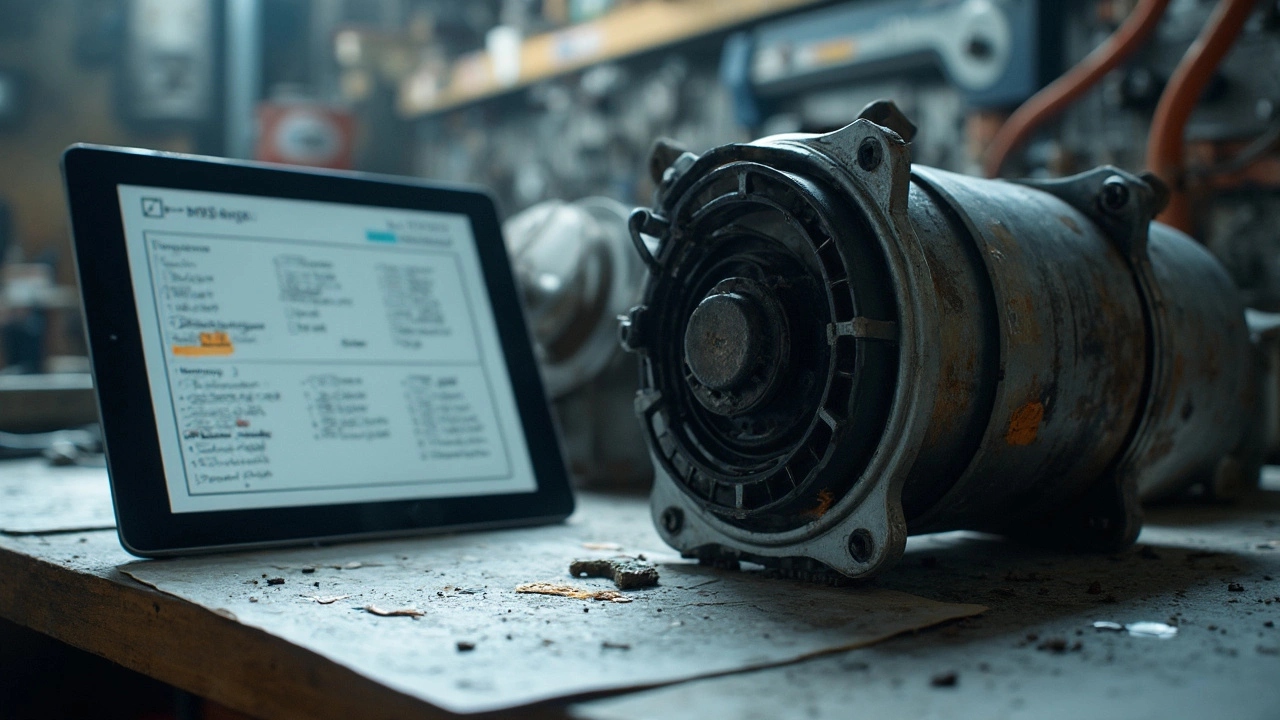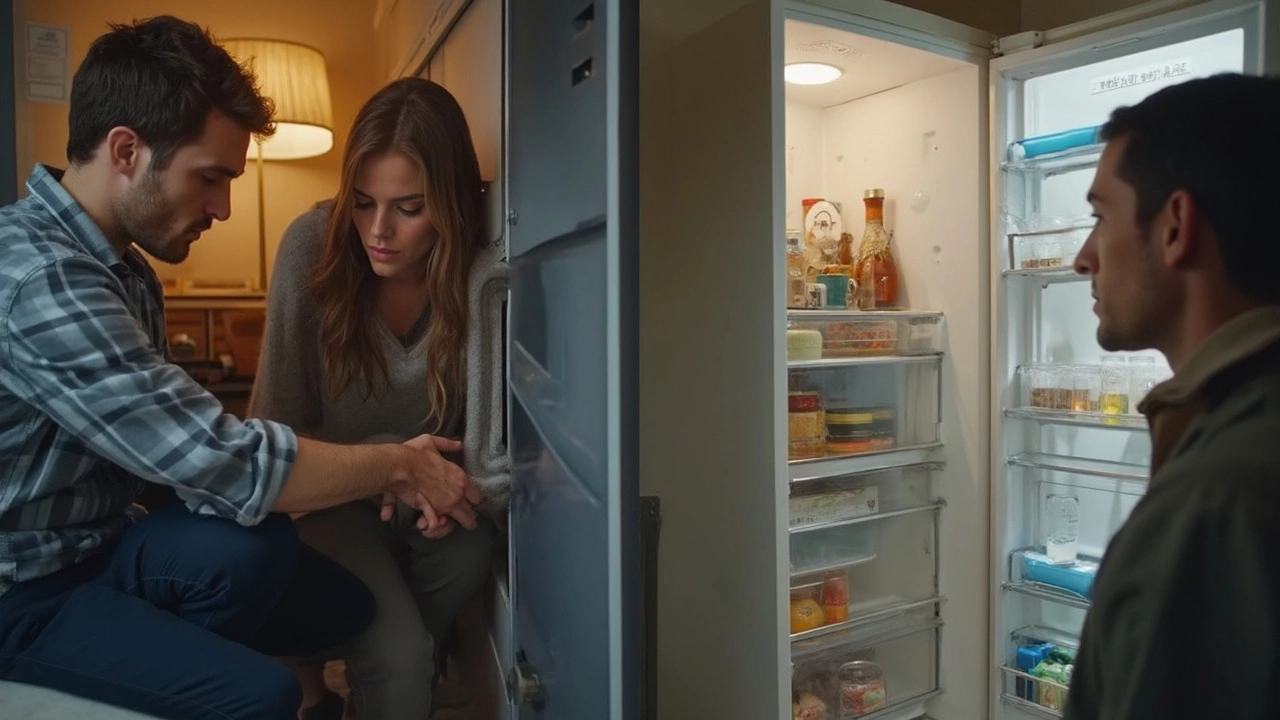Staring down a dead freezer with a compressor that’s kicked the bucket is enough to ruin anyone’s week. Who wants soggy ice cream and wasted leftovers? More than that, the price tag attached to compressor replacements sends people into a spin—do you fix it or just get a new freezer? Turns out, this is a trickier decision than most folks expect. It’s not just about costs. There are sneaky fees, warranty traps, and performance headaches lurking under the surface. Let’s really dig into whether swapping out that compressor is a bright idea, or if you’re better off shopping for something brand new.
What Happens When Your Freezer Compressor Fails?
Your freezer’s compressor is its beating heart—it pumps refrigerant, turns hot air into cold, and keeps those ice cubes rock solid all year. When the compressor bites the dust, everything else grinds to a halt. You’ll notice your freezer slowly warming up, food starts to soften, and frost gives way to water puddles. Sometimes, the unit gets weirdly noisy or, on the other end, goes silent. For many people, it feels like the ultimate appliance betrayal. The first instinct is to call a repair technician, hoping for a simple fix. But here's the brutal truth: compressor failure is one of the most expensive—and complicated—problems you can have in a freezer. A lot of times, replacing the compressor feels like overhauling an old car engine. Sure, you can do it, but should you?
Here's an odd but true tidbit: the compressor itself often isn’t the only part that needs replacing. According to a 2023 Whirlpool technical bulletin, techs also recommend swapping out the dryer filter, and sometimes the start relay, because sludge and acid from compressor burnout can contaminate the system. That means more labor and more dollars out of your pocket.
| Repair Step | Average Cost (USD) |
|---|---|
| Compressor Part | $200 - $500 |
| Labor | $150 - $400 |
| Additional Components | $30 - $150 |
| Refrigerant Recharge | $80 - $150 |
Add all that up, and you see how quickly a "simple" fix balloons. Usually, the total repair bill lands somewhere between $460 and $1200, depending on your freezer’s make, model, and local labor rates. And if your freezer is a newer, high-end unit, the costs might push even higher. Here’s a quote from the National Appliance Repair Association’s 2024 guidance that sums it up:
"Replacing a freezer compressor is one of the priciest appliance repairs, often exceeding half the cost of a brand-new model."
On top of the price, you deal with downtime—sometimes repair techs need a few days to order parts. If you rely on your freezer for batch-cooking or storing valuable food items, this wait alone can cause big headaches. And after repair, there’s no ironclad guarantee the fix will last. Some compressors last ten years after a swap; others fizzle out in a year or two, especially if there’s hidden contamination.
Tech tip: If your freezer is over ten years old, most appliance pros agree it’s rarely worth fixing, unless you’re attached to a vintage look or unique feature. Why? Efficiency drops hard with age. Newer models are way more energy-smart—some can shave $30 a year off your electric bill just by switching.

Biggest Factors Affecting Your Decision
If you’re sweating the numbers, you’re not alone. The choice between repairing and replacing depends on more than the sticker price. Here are the real-world things you need to weigh before throwing cash at a new compressor:
- Freezer compressor replacement cost vs. replacement: As that table up above showed, compressor jobs often eat up 50-80% of what you’d pay for a new freezer. If your current unit wasn’t fancy or big, why spend close to new?
- Unit age and expected lifespan: The average standalone freezer or refrigerator-freezer lasts about 10–15 years, according to Consumer Reports. If your appliance is closer to the grave than the cradle, repair money is often better spent on an upgrade.
- Energy star ratings: New freezers use less power, are quieter, and often have quick-freeze modes. The EPA’s Energy Star program estimates an old 1990s chest freezer can use upwards of 700 kWh per year. New ones? As little as 200 kWh.
- Type of food storage: If you freeze high-value cuts of meat, specialty foods, or tons of batch meals, avoiding any downtime is key. Temporary loss during repairs means extra risk—or buying ice and coolers.
- Availability of parts and skilled techs: Some older or low-budget models use less common compressors. It’s not rare for techs to struggle to source the right part for ten-year-old freezers made by now-defunct brands.
Another thing most folks don’t realize: compressor replacements are a tougher repair than most refrigerator fixes. The tech has to recover and recharge refrigerant, solder lines, vacuum out the system, possibly flush for acids, and sometimes update system controls. A single hiccup and your freezer may break down again in a year.
If your freezer is under warranty, that changes everything. Most appliance manufacturers only cover sealed system parts (compressor, condenser, evaporator) for five years, tops, and labor for just one. Always double-check your specific warranty. Don’t just assume the whole cost is covered—small print matters. For example, LG and Samsung’s 2022 terms required customers to pay outbound shipping for parts on some freezers, even during the warranty period.
Maybe you’re attached to your freezer—family hand-me-down, custom feature, or matching appliances. In those rare cases, if the unit is otherwise mint and you love everything about it, a compressor swap might make sentimental sense. Just know, you’re gambling with a pricey repair, and new breakdowns down the road are likely.

Money-Saving Tips and Red Flags to Watch Out For
The decision to fix or ditch comes down to cold, hard numbers—plus a healthy dose of practicality. But there are a handful of smart moves to save your sanity (and wallet):
- Get a second opinion. Freezer compressor failures can sometimes be misdiagnosed; a stuck relay, thermostat, or dirty coils can mimic compressor woes. Ask at least two licensed appliance techs to double-check the diagnosis before forking over hundreds for a repair.
- Be alert for "universal" compressors. Some repair shops try to fit a cheaper, non-OEM part to lower costs. While universal compressors can work, they often run less efficiently, make more noise, or fail faster than model-specific replacements.
- Look for manufacturer service bulletins. Big brands sometimes issue bulletins about problematic compressors—if yours is one of them, you may qualify for a free or discounted repair out of warranty.
- Factor in hidden costs. Don’t forget about spoiled groceries, the need to find temporary freezer space, and energy-hungry loaner appliances if repair drags out.
Here’s a practical test: if you’re faced with a $900 compressor repair and a similar new freezer costs $1200, it's usually smarter to put that cash toward the new one. You get fresh energy efficiency, a clean warranty slate, and years free from major hassles. But don’t immediately write off small, simple repairs—sometimes a noisy compressor is just a bad relay or $40 part away from a new lease on life.
Watch for red flags: if your repair guy pushes a compressor swap but brushes off warranty checks, part origins, or says it’s "the only way," slow down. Not all techs are equal. Ask what steps they’ll do to clean the system (flush lines, replace dryer) and what guarantees back the work.
| Factor | Worth Repairing? |
|---|---|
| Unit under 5 years with warranty | Usually Yes |
| Unit over 10 years old | Rarely |
| Repair cost under half price of new | Sometimes |
| Energy efficiency poor | Probably No |
| Special features, custom fit | Worth a look |
So, is it worth replacing a compressor? If the unit is fairly new, pricey, under warranty, or has features you love, repairing might make sense—if you use a great tech and the part comes with a strong guarantee. But for most older or basic units, repairing isn’t worth the money and the gamble. Cut your losses, grab a modern, efficient model, and save yourself the ongoing drama. And next time, keep an eye on your warranty coverage—and maybe don’t cram that freezer with so many mystery leftovers.


